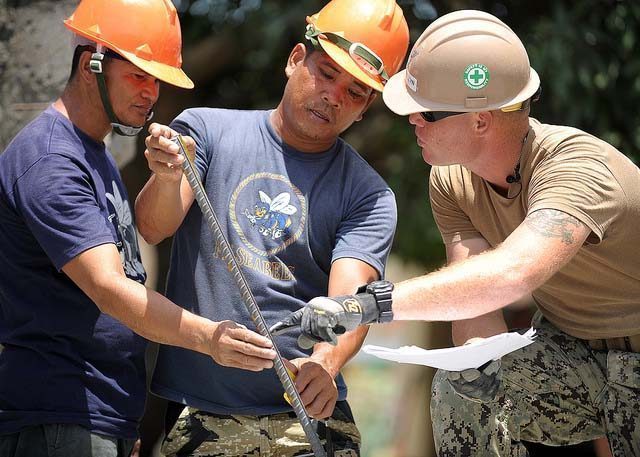
Government officials from the Philippines are in Qatar this week to negotiate a newly enforced requirement that could prevent thousands of Filipino professionals from legally working here.
All expat engineers and architects are required to officially register with Qatar’s Urban Planning and Development Authority (UPDA), which issues equivalency certificates that enable them to practice in the state.
However, Qatari authorities apparently do not recognize certain education and work experience certificates issued for Filipino professionals, according to a statement by the Philippines’ Labor Secretary.
The deadline to register closes today (Jan. 31), but some 12,000 Filipino expats have not been able to get the certification because the system does not recognize their shorter school career, Labor and Employment minister Rosalinda Dimapilis-Baldoz said in a statement.

Professional Regulation Commission acting chairperson Angeline T. Chua Chiaco and Patricia B. Licuanan, Chairperson of the Commission on Higher Education, had been due to fly to Qatar over the weekend to meet with Qatar’s Minister of Education and Higher Education, Dr. Mohammed Abdul Wahed Ali Al Hammadi, to resolve the issue, Baldoz added.
Education rules
Qatar’s UPDA website requires people who are registering as engineers and architects to have 12 years of basic education, plus four or more years of higher education under their belts.
But until 2011, students in the Philippines only had six years of primary education and four years of high school for a total of 10 years, before going to college or university.

The Philippines government has since introduced a K-12 education system, which complies with requirements from Qatar and other countries.
According to Baldoz:
“The Supreme Education Council (now Ministry of Education and Higher Education) considers the 12-year basic education program as equivalent to a high school diploma.
As such, Filipino engineers could not register with the UPDA because all of them underwent only 10 years of basic education, and the Qatari authorities have only issued a two-year diploma equivalency for engineering degrees earned in Philippine higher education institutions (HEIs),” Baldoz said.
She added:
“If an OFW (overseas foreign worker) engineer, or any foreign engineer for that matter, is unable to register with the UPDA, he/she cannot practice his profession in Qatar. In short, the 12,000 OFW engineers could possibly be displaced from their jobs.”
But she said she was “optimistic” that the talks would result in Filipino professionals’ qualifications being accepted, adding that Qatari employers were “open and supportive” of their requests.
Baldoz added that she was not aware that the new system had resulted in any Filipino architects or engineers losing their jobs yet.
More demand
The issue comes amid increasing demand for Filipino labor in Qatar with the number of job openings increasing from 85,510 in 2014 to 104,872, according to records by the Philippines’ Overseas Employment Administration (POEA).

There are 172,000 Filipino workers registered in Qatar, of which half (86,000) are highly-skilled and over 17 percent (23,000) are professionals.
Philippine-trained architects and engineers in Qatar earn between QR7,500 and QR23,000 a month, Baldoz said.
Semi- or low-skilled workers and domestic staff each represent around 17 percent (30,000) of the total Filipino workforce here in Qatar.
The Philippines and Qatar have long been in talks over a prospective agreement on education cooperation between the two countries, which the Philippines mission in Qatar said it hopes will be signed this year.
Thoughts?







